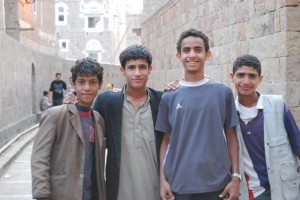Twenty-one year-old Khaled Abd al-Khalq likes to think the new Libya will be fairer than the old one.
"Before, especially in construction, the businessmen with connections to the people around Gaddafi dominated the industry and made sure they had the biggest share of the cake," Abd al-Khalq said.
"Now the country is changing. We hope we can do more business than before."
Abd al-Khalq fought his way from the far east of the country to his hometown of Tripoli during the revolution. Now, he is back at work at his father's small construction company.
"It changed everything," he said in a shy voice when asked about the uprising that ended Gaddafi's 42-year rule.
"Before the revolution we didn't have any dreams at all. We were just living."
In the old Libya, Abd al-Khalq quit his studies after high-school because he "didn't like it." Now he has signed up for university classes in management and is busy supervising the family firm's construction sites.
Many of the construction workers his company employed were foreigners and left the country during Libya's eight-month civil war. He has been working to bring them back and obtain the necessary immigration papers for those who need them.
"I'm still signed up to the brigade but there's no use for it now. My priority right now is my job even though there's no work at the moment," he said, sipping coffee on a cafe terrace.
"We're preparing the whole business so we'll be ready for any work that comes."
Much of Libya's economy is at a standstill as the new provisional government focuses on basic needs such as ensuring security.
Libya's numerous militias, such as the Capital Martyrs' Brigade that Abd al-Khalq fought with, have yet to lay down their weapons. Many military leaders are jostling for positions ahead of elections scheduled for the middle of next year. But the most important thing is to make the country a fairer place, he said, particularly for business.
(Source: Reuters)





